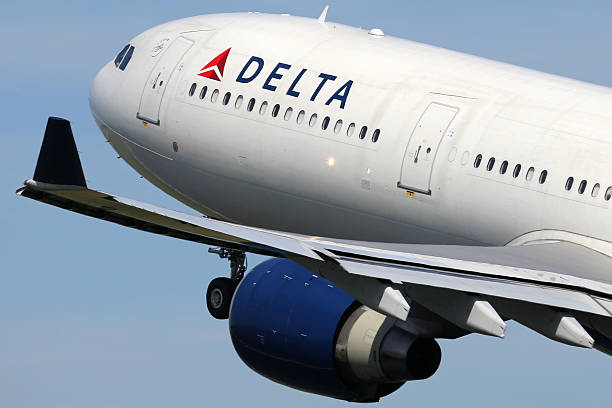Delta Air Lines (DAL) recently announced its first-quarter earnings for 2023, surpassing analysts’ expectations and leading to a rise in the company’s stock price. With adjusted earnings per share of $0.25, Delta performed exceptionally well, exceeding the consensus estimate of $0.15. Additionally, the company reported revenue of $12.8 billion, marking a 12% increase compared to the previous year.

Strong Demand for Air Travel Drives Delta’s Success
Delta’s outstanding financial results can be attributed to robust demand for air travel. The company observed a remarkable 15% year-over-year increase in passenger revenue, with particularly strong demand in the business travel segment. Furthermore, Delta benefited from higher fuel prices, which helped mitigate some of the cost challenges faced by the company.
Positive Market Response and Analyst Feedback
Following the release of the impressive earnings report, Delta’s stock price surged more than 3% during after-hours trading. Analysts responded positively to the results, referring to them as a “positive surprise.” Helane Becker, an analyst at Cowen, commented, “Delta’s first-quarter results were better than expected, driven by strong demand and higher fuel prices. The company also raised its guidance for the full year, which is encouraging.”
Delta’s Role in the Airline Industry Recovery
Delta’s successful performance serves as a promising indication that the airline industry is gradually recovering from the impact of the pandemic. The company is optimistic about its future prospects and has projected revenue growth of 15% to 20% for the entire year of 2023.
Is Delta Air Lines a Good Investment?
The strong earnings report has prompted some investors to question whether Delta Air Lines is a worthwhile investment. Currently trading around $42 per share, the stock price remains below its pre-pandemic peak of $60 per share. However, there are several factors to consider before making an investment decision.
Delta Air Lines faces certain challenges, including the impact of rising fuel prices and labor shortages. These factors can influence the company’s profitability and operational efficiency. Nonetheless, Delta is well-positioned to capitalize on the ongoing recovery in air travel demand.
In conclusion, Delta Air Lines is a solid company with a promising future. Despite the challenges it faces, the stock is currently undervalued, making it a potential long-term investment opportunity. Investors should carefully evaluate their risk tolerance and conduct further research before making any investment decisions.
FAQs (Frequently Asked Questions)
- Is Delta Air Lines a profitable company? Delta Air Lines has demonstrated profitability and recently reported strong earnings for the first quarter of 2023, surpassing analyst expectations.
- What factors contributed to Delta’s positive earnings report? Delta’s positive earnings report can be attributed to strong demand for air travel, increased passenger revenue, and higher fuel prices.
- What is Delta’s outlook for the full year of 2023? Delta Air Lines is forecasting revenue growth of 15% to 20% for the full year of 2023, indicating a positive outlook for the company.
- What challenges does Delta face as an airline company? Delta Air Lines faces challenges such as rising fuel prices and labor shortages, which can impact its operational costs and efficiency.
- Is Delta Air Lines a recommended long-term investment? Delta Air Lines, with its current undervalued stock price and potential for future growth, could be considered a viable long-term investment option. However, investors should conduct thorough research and assess their risk tolerance before making any investment decisions.


